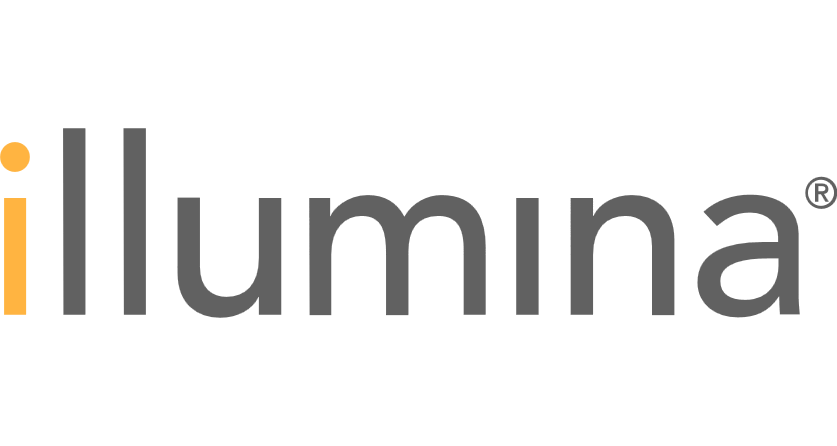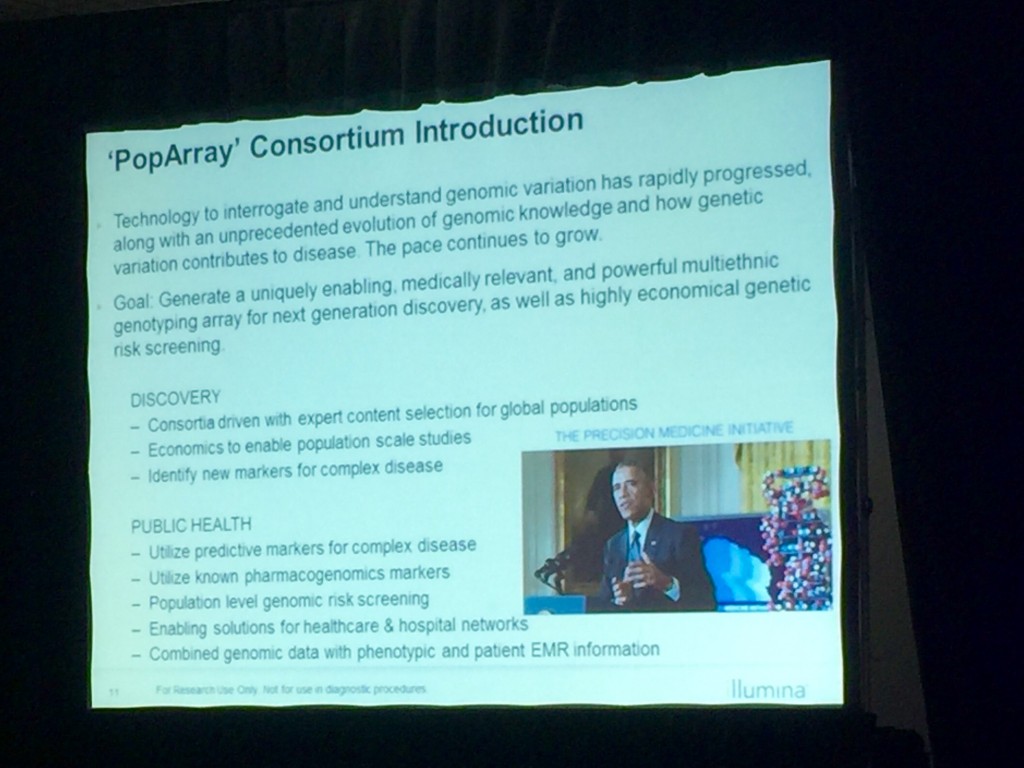Illumina Announces a Consortium to Create a 750000 SNPs Microarray

Illumina presented his PopArray Consortium at the Individualizing Medicine Conference at Mayo Clinic in Rochester, Minessota. The initiative aims to collect genomic data from the population at a massive scale. With the collaboration of other organizations, Illumina plans to gather 3 million genetic samples and use this information to create a microarray of 750000 single-nucleotide polimorphysms (SNPs). The array would become a cheap tool to genotype whole populations made of different ethnic groups.
Illumina wants to take advantage of the current state of genomics science and technology. Our knowledge of genetic variation and its links to disease is growing very quickly. The PopArray project would not only greatly increase that knowledge but also has implications in human health. The consortium predicts the identification of new disease markers; together with already known markers, they would be used to predict complex diseases. The array also could inform about population genomic risk and be used in pharmacogenomics. Hospital networks would benefit from this wealth of information and would be able to combine it with patient phenotypic data.
Using NGS data to build microarrays
Genome sequencing is the most complete technique to understand and identify genetic diseases, but the cost of a population scale study in still unassumable. Illumina opted for microarrays instead of NGS. In a smart move, the company will use genomic information gathered with sequencing technology and use it in a very cost-effective device.
Potential collaborators must be able to provide at least 150000 samples or $4.35 million. Illumina offers 50000 custom SNPs in the array to each company or organization that joins in, plus discounts in sequencing technology. Analizing a PopArray sample will cost between $19 and $29. The company has not disclosed yet any partners.
Source: medcitynews

